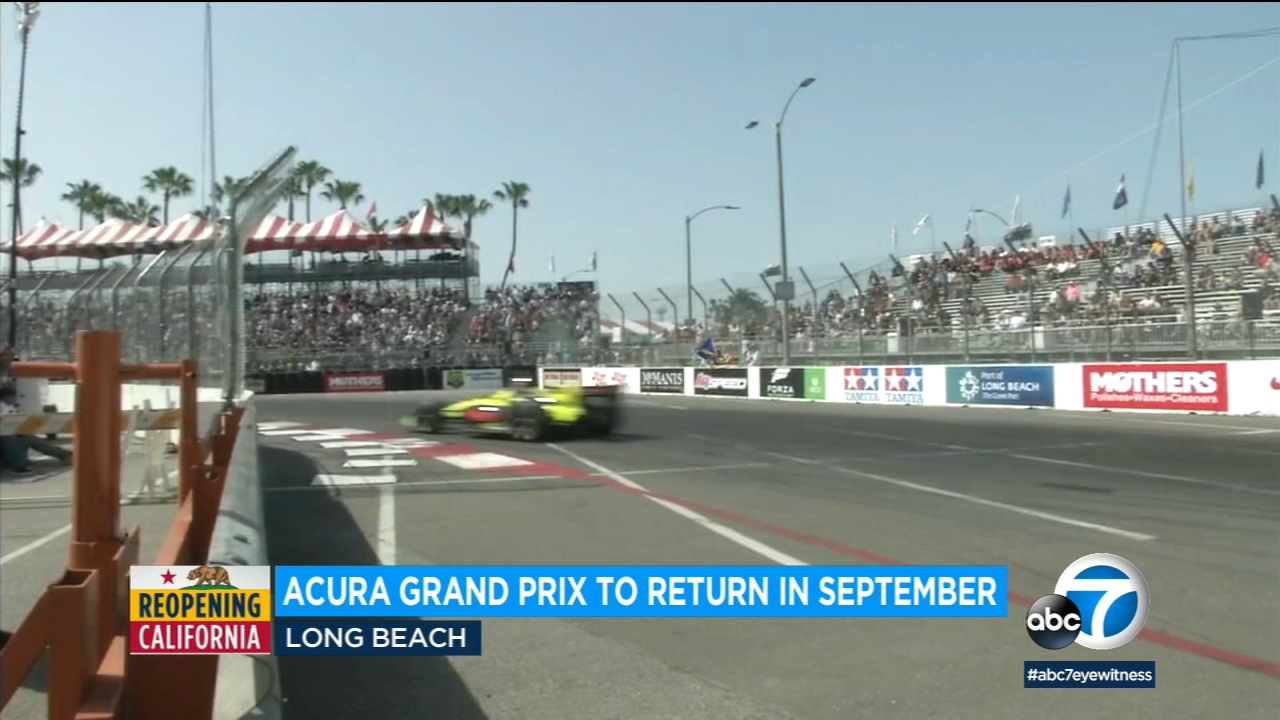With California fully reopening, here are the major changes
After more than a year of restrictions, California is now fully reopening its economy. We break down everything you need to know.

California imposed the first statewide shutdown in March 2020, and on Tuesday, the state was among the last to fully reopen.
Effective at 12:01 a.m., the state officially scrapped its Blueprint for a Safer Economy, the four-tier, color-coded roadmap of restrictions on economic activity and public gatherings based on individual counties' COVID case rates and testing-positivity rates.
In short, pretty much everything will be allowed to go back to normal, especially if you're vaccinated. There aren't any required capacity limits, no more physical distancing, and much looser mask mandates.
"It's been a tough year for all of us, a tough 15 months for all of us -- all the fear and anxiety that we've all had to work through,'' Gov. Gavin Newsom said during a celebratory event at Universal Studios Hollywood. "I'm mindful of that stress still upon so many of you. I recognize the incredible burden
that's been placed on you over the course of the last year. But I want folks to know that the state has your back as we come back."
Businesses can also impose certain rules and require proof of vaccination, if they choose to do so. Masks will also still be required for the following settings, even if you're vaccinated:
- Any form of public transportation
- Hospitals and long-term care facilities
- Indoors at K-12 schools and childcare facilities
- Prisons and homeless shelters
- Indoor workplaces (except if everyone in the workplace is fully vaccinated)
On Monday, Newsom revealed that vaccinated workers will be able to stop wearing masks after June 17, the date of Cal/OSHA's next meeting.
What about large events like sports games and big concerts? What restrictions are in place there?
Concerts can resume, along with full-capacity crowds at sporting events. These sort of "mega events" -- as the state is calling them -- are the only area with some COVID-19 restrictions.
At outdoor live events with more than 10,000 people, California will recommend venues have a verification of vaccination/negative test in place. Those who aren't vaccinated or who don't show a negative test result can still enter if they wear a mask. This is a recommendation from the state, not a requirement.
Indoor venues with 5,000 or more people are required to implement a similar verification. However, at these indoor events, non-vaccinated people who don't show a negative COVID-19 test result can't enter, the state says. This is a requirement, not a recommendation.
California's statewide shutdown last year was an early model for how restrictions could keep the virus at bay but later became the U.S. epicenter of a deadly winter surge that overwhelmed hospitals in Los Angeles and other areas. More people tested positive for the virus in California - about 3.8 million and counting - and more people died - 63,000-plus - than elsewhere in the country. However, the nation's most populous state had a lower per capita death rate than most others.
With return to sense of normalcy on June 15, Californians find themselves with mixed feelings

For the past couple months, the state has experienced the lowest - or some of the lowest - rates of infection in the U.S. Its vaccination level also is higher than most other states; two-thirds of those eligible have gotten at least one dose.
Newsom long ago set June 15 as the target to lift restrictions on capacity and distancing regulations for nearly all businesses and activities. But Newsom said he will not end the statewide declaration of emergency. That ensures the governor has the power to alter or suspend state laws in the future. That has angered Republican lawmakers who say the declaration is unnecessary.
City News Service, Alix Martichoux and The Associated Press contributed to this report.










